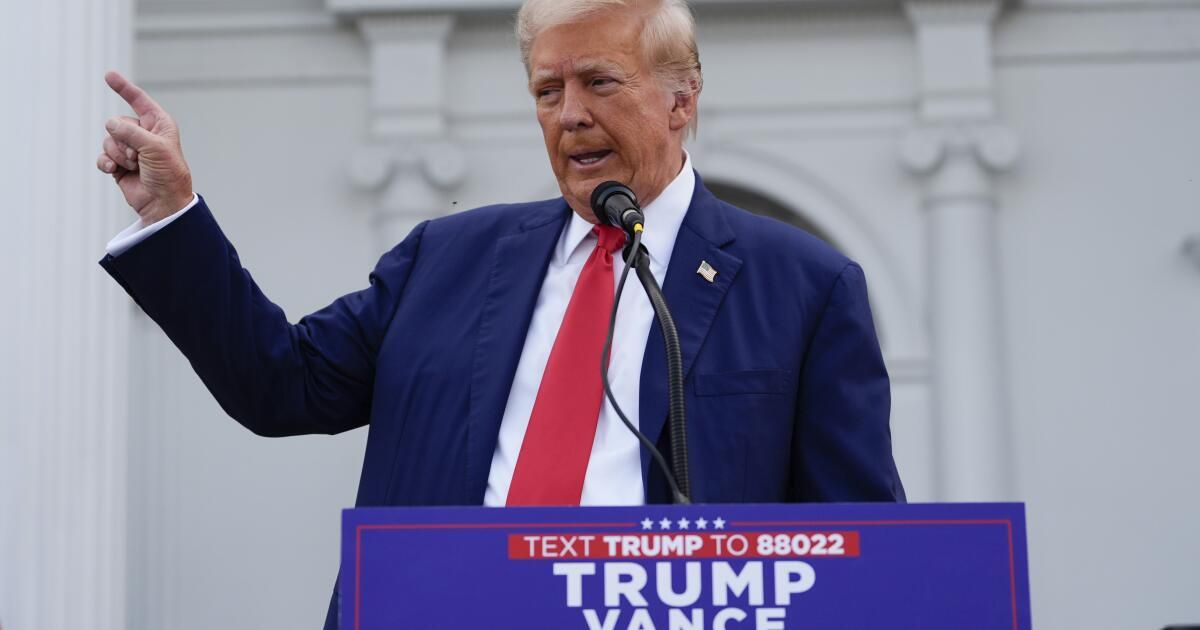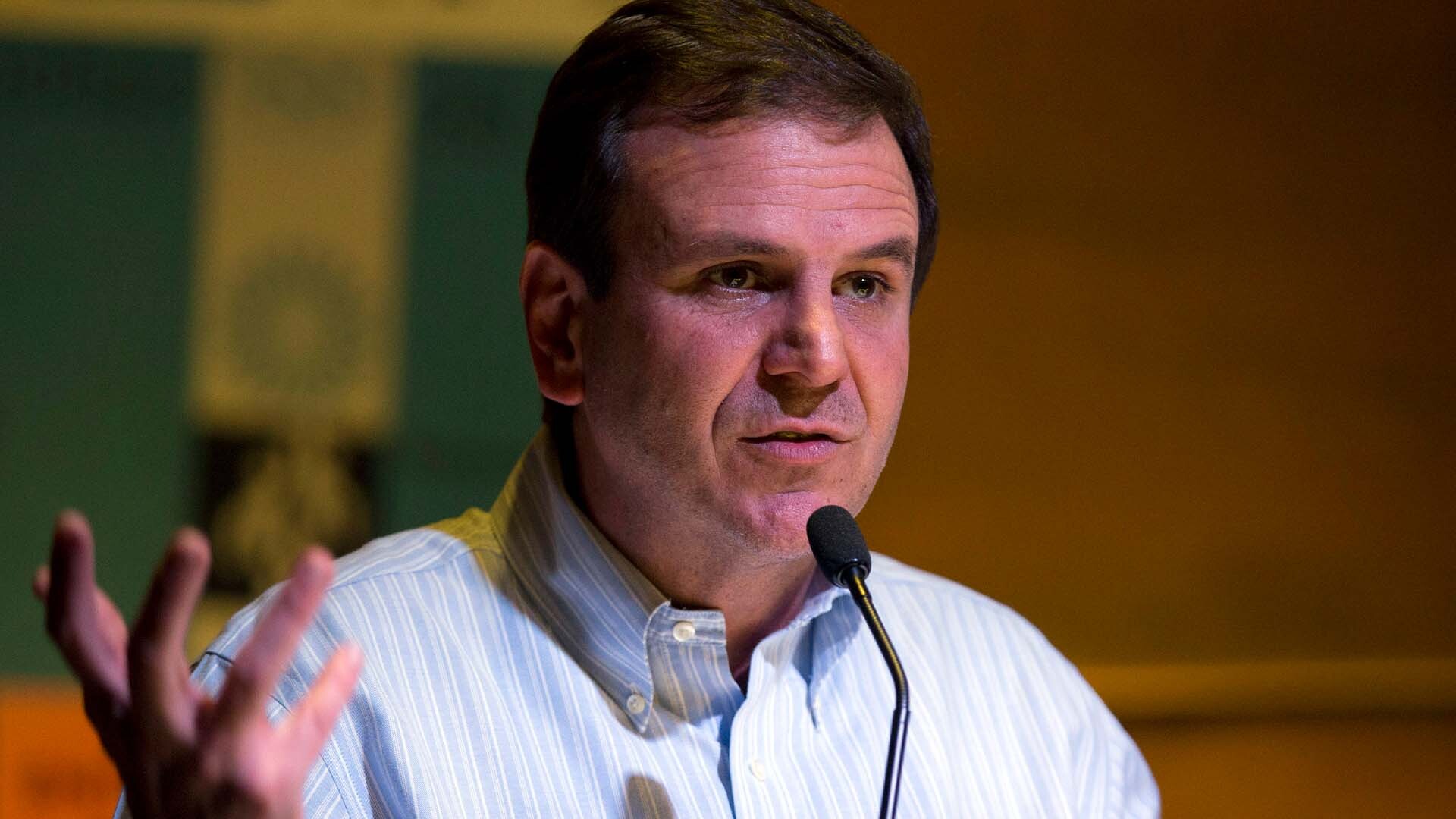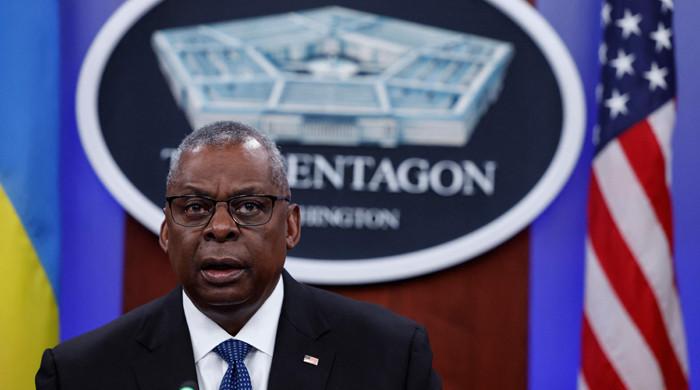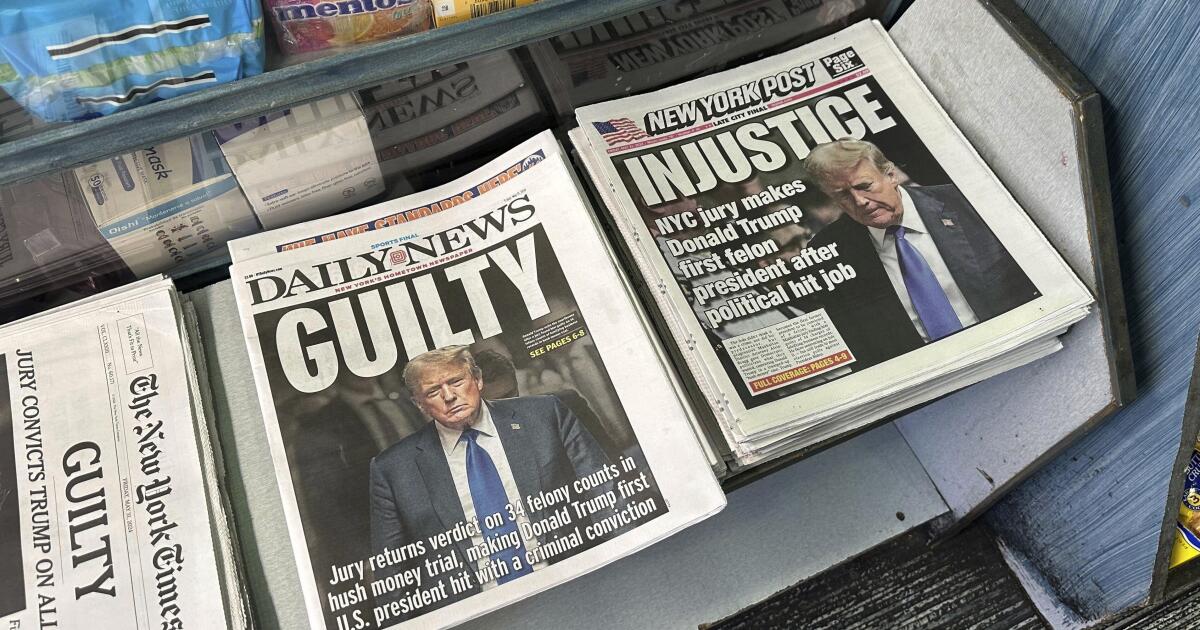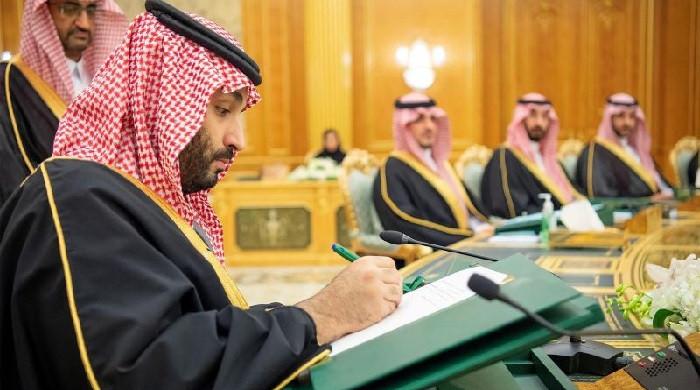Standing at a table of coffee, cereal and breakfast meats at his New Jersey golf club on Thursday, former President Trump began what he billed as his second news conference in as many weeks by highlighting the rising costs of everyday foods due to inflation, an important issue for voters in November.
He then veered into a rambling 40-minute speech, uninterrupted by questions from the media, in which he aired old political grievances and debunked conspiracy theories, and lied, repeatedly, about the state of the economy, the nation’s security and the policies of Vice President Kamala Harris, who is running against him in the presidential race.
Among other things, Trump made the easily debunked false claim that Harris, a former San Francisco district attorney and California attorney general, made it legal for shoplifters in California to “rob a store” if what they take is worth less than $950.
Thieves “go into stores with calculators, they figure out how much it costs, because if it’s less than $950, they can steal it and not be charged,” Trump said. “She’s the one who did that.”
Trump’s event was part of a new campaign strategy to draw a contrast to Harris, whom the Trump campaign has been criticizing for not taking questions from the media as she rides a wave of Democratic enthusiasm. But this and other recent events have had the added effect of reviving a much older Trump strategy for attracting attention, which basically involves standing in front of reporters and talking nonsense.
At his recent events, Trump has launched a constant stream of insults at the country, at Harris and at the media, which has responded by inundating him with headlines.
Some of those headlines have been critical, such as an NPR analysis that found Trump made at least 162 “misstatements, exaggerations and outright lies” during his hourlong news conference at his Mar-a-Lago Club in Florida last week, or “more than two per minute.”
However, many others have simply repeated his most outrageous claims, thereby expanding their reach.
Harris’ campaign has largely ignored calls for her to speak to the media more often (which has frustrated reporters) and has responded instead by mocking Trump’s rallies as pathetic ways to get the spotlight. Ahead of Trump’s event on Thursday, for example, Harris’ campaign predicted to reporters that the Republican nominee would “deliver another self-centered speech filled with his own personal grievances to distract from his toxic Project 2025 agenda, his unpopular running mate, and his growing detachment from the reality of the voters who will decide this election.”
“Tune in for the same old same old,” the message concluded. In another post-event statement, which it titled “Our Statement on What Trump Said… Whatever It Was,” Harris’ campaign reduced Trump’s lengthy speech to “huffing and puffing.”
Jennifer Mercieca, a political historian and communications professor at Texas A&M and the author of “Demagogue for President: The Rhetorical Genius of Donald Trump,” said the Republican’s latest use of news conferences — and interviews with sycophants like billionaire Elon Musk, who this week fielded easy questions for the former vice president on his social media platform X — is classic Trump.
“It’s an information war. He wants to flood the zone with his content, he wants us to talk about what he wants us to talk about, through his framework,” she said. “He’s interested in dominating, dominating the news cycle, and these press conferences give him the opportunity to dominate the news cycle.”
Many of Trump’s deviations from the truth are due to his style of political discourse, in which he regularly speaks in superlatives and employs populist language to present himself as an authoritarian leader who can do no wrong. In his version of things, everything he does is the best or the “greatest,” while any plan, policy or outcome of his opponents is the “worst.”
At Thursday’s event, Trump was cheered by a group of supporters, making it seem more like a campaign event than a news event, and he only answered a handful of questions, some of which seemed prepared for him, such as one asking why God chose to spare him during the assassination attempt in Butler, Pennsylvania.
He lashed out at California and Gov. Gavin Newsom, calling him a “newscum,” and suggested Harris had destroyed the state.
“San Francisco, as you know, was a great city 15 years ago. Now it is considered almost uninhabitable. You can’t live there,” he said.
He repeated a false claim that all new jobs in the country are going to immigrants, and said that if Harris is elected, the United States would suffer a “1929 crash” — a reference to the Great Depression — and see Social Security and “probably the nation itself” go bankrupt.
“You don’t have to imagine what a Kamala Harris presidency would be like,” he said, “because you’re living that nightmare right now.”
He said Harris “is for the death of the American dream” and repeatedly suggested the 2020 election was stolen, which it was not. And as in other recent media events, he ridiculed the press, at one point alleging without any evidence that members of the “fake news” were destroying old videos that would prove Harris had changed her position.
“All they have to do is go back and look at her tapes, many of which have been thrown out, thrown out by the fake news, because they don’t want people to see what she said just a year ago,” Trump said.
Robert C. Rowland, a professor of rhetoric at the University of Kansas and author of “The Rhetoric of Donald Trump: Nationalist Populism and American Democracy,” said Trump has never demonstrated a real ability to focus on policy, at least not on the details. The former president has always spoken thoughtlessly about what threatens his base.
That can work, but it has become more difficult lately, Rowland said, as inflation has slowed, food prices have moderated and some wages have risen. Making matters worse for Trump is that his ramblings are becoming less and less coherent.
“That tendency to ramble, to digress in the stream of consciousness and to brag unabashedly, all of those things have become much stronger and much less coherent than they were in 2016 and 2020,” Rowland said. “The stream of consciousness has become less clearly connected to actual events and more connected to a sense of grievance and anger.”
Mercieca said politicians answering questions directly from the media is a good thing — an important part of any democracy — but that Trump has managed to turn that on its head, using his lies to undermine the media, people’s trust in the Fourth Estate and “democracy itself.”
Trump says whatever he wants — whether it's sincere or insincere, whether it's bigoted, whether it's boastful, whether it's cruel — because he knows the media will repeat it and because he knows that neither his base nor the Republican establishment, which has handed him the party, will control it.
To avoid being used, Mercieca said, journalists should write about Trump's “press conferences” only if he says something newsworthy, not every time he says it. anything scandalous, because the latter, at this point, is his usual speech, a campaign speech that is no longer news.
“When a plane lands safely, that’s not news, because that happens every five seconds,” Mercieca said. “When Trump says something outrageous, that’s not news, because that happens every five seconds.”

